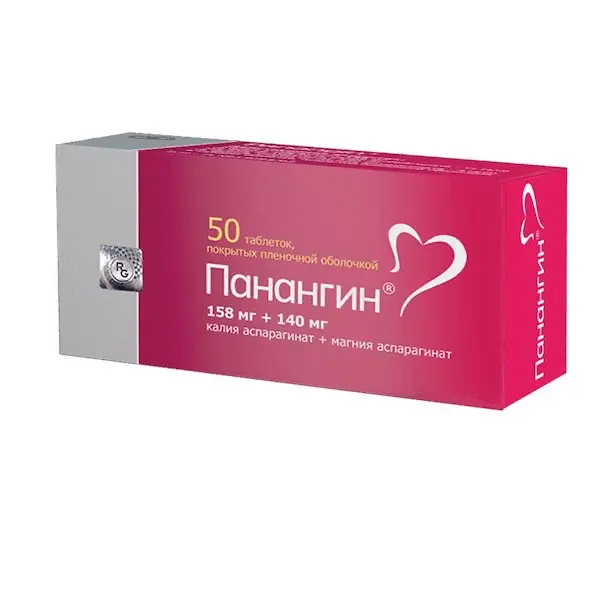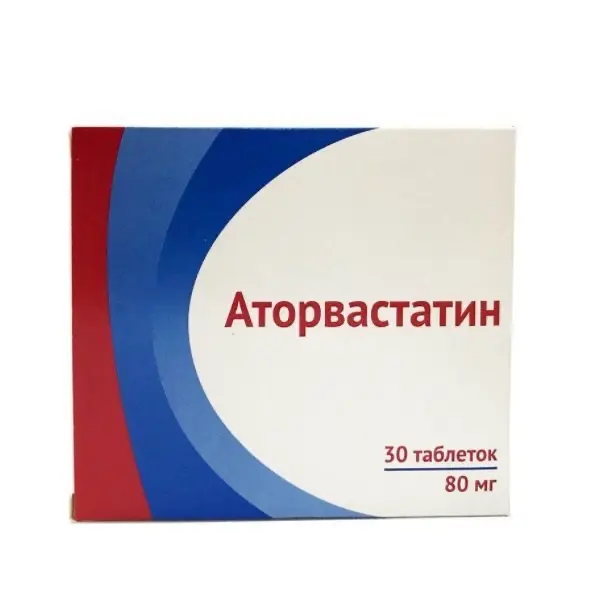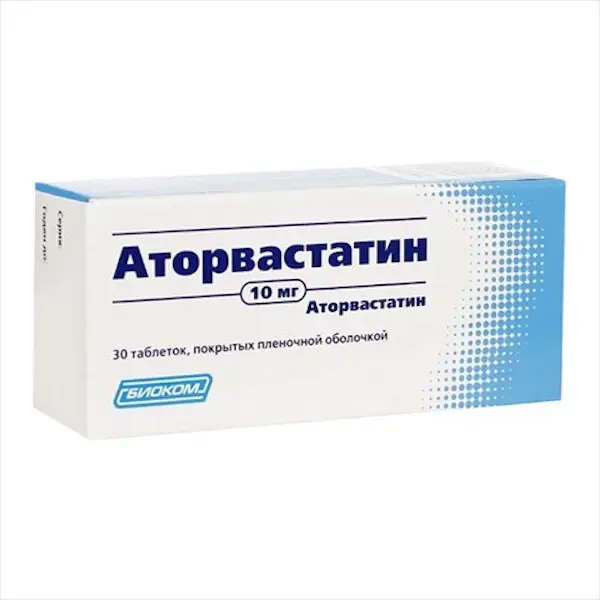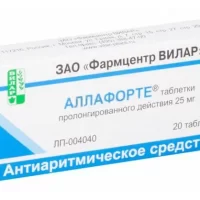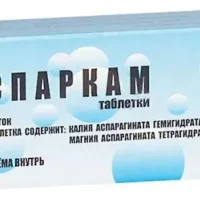Description
Panangin Pharmacodynamics
The most important intracellular potassium (K+) and magnesium (Mg++) cations play a key role in the functioning of numerous enzymes, in the formation of bonds between macromolecules and intracellular structures, and in the mechanism of muscle contractility. The intra- and extracellular ratios of potassium, calcium, sodium, and magnesium ions influence myocardial contractility. Endogenous aspartate acts as a conductor of ions: it has a high affinity for cells; due to slight dissociation of its salts, ions in the form of complex compounds penetrate the cell. Magnesium and potassium aspartates improve myocardial metabolism. Magnesium/potassium deficiency predisposes to the development of arterial hypertension, coronary artery atherosclerosis, arrhythmias and metabolic changes in the myocardium. Magnesium and potassium aspartate supplementation can compensate for the lack of these electrolytes in the diet.
Indications
For elimination of potassium and magnesium deficiency in combined therapy for various manifestations of coronary heart disease (including acute myocardial infarction), chronic heart failure, cardiac arrhythmias (including arrhythmias caused by overdose of cardiac glycosides).
Contraindications .
Hypersensitivity to any drug component, acute and chronic renal insufficiency, hyperkalemia, hypermagnesemia, Addison’s disease, 1st – 3rd degree atrioventricular block, shock, including cardiogenic shock (blood pressure < 90 mm Hg), amino acid metabolism disorders, severe myasthenia, hemolysis, acute metabolic acidosis, dehydration, age under 18 years (effectiveness and safety is not established).
Caution
Pregnancy (especially in the first trimester of pregnancy) and breast-feeding.
Usage in pregnancy and during breast-feeding period
Use is possible if the potential benefit to the mother exceeds the possible risk to the fetus.
Potassium and magnesium asparaginate penetrate into the breast milk. If it is necessary to take the drug while breast feeding, breast feeding should be discontinued.
Directions for use and dosages
- Consult a doctor before using.
- In the mouth, without chewing and with plenty of water. The drug should be used after meals, as an acidic environment of the stomach decreases its effectiveness.
- Usual daily dose: 1-2 tablets 3 times a day. Maximum daily dose: 2 tablets 3 times a day.
- The duration of treatment and the need for repeated courses of therapy are determined by the physician.
- Administration in children and adolescents.
- There are no data concerning safety and efficacy of Panangin® administration in children and adolescents.

